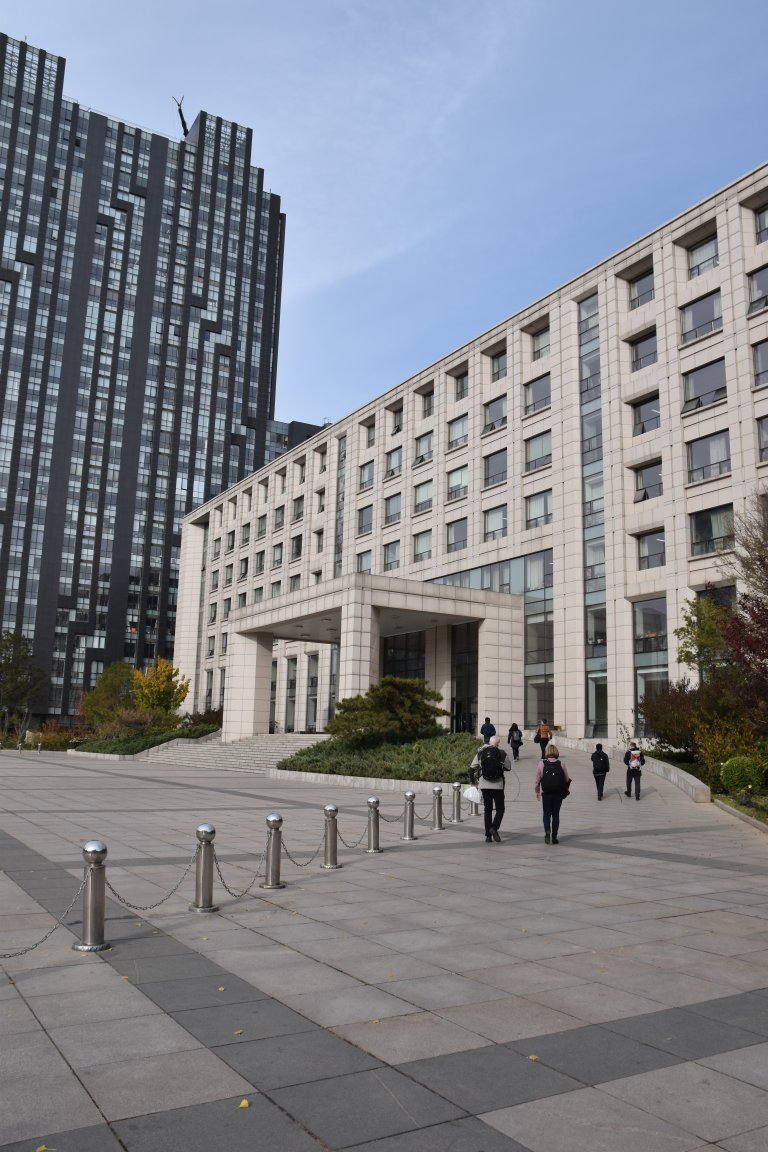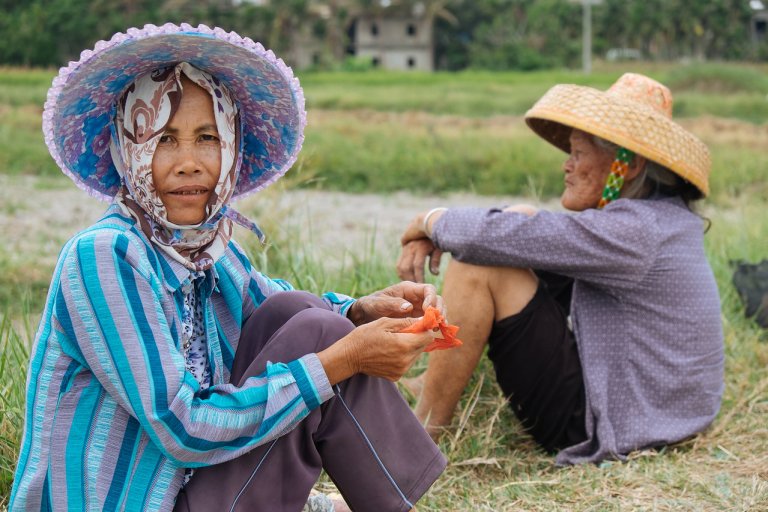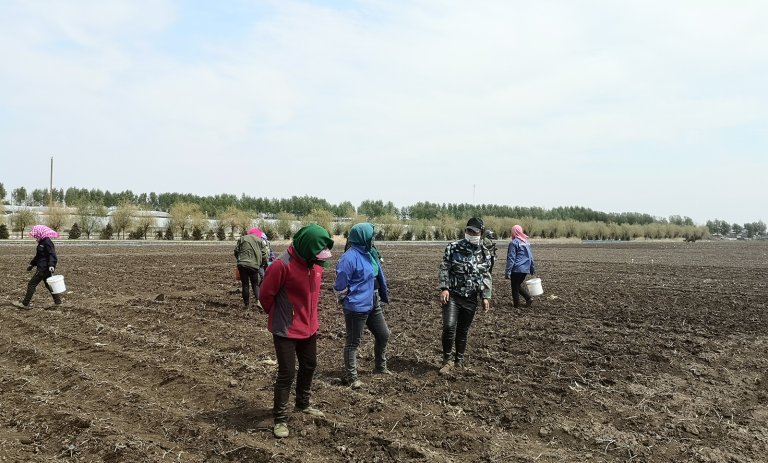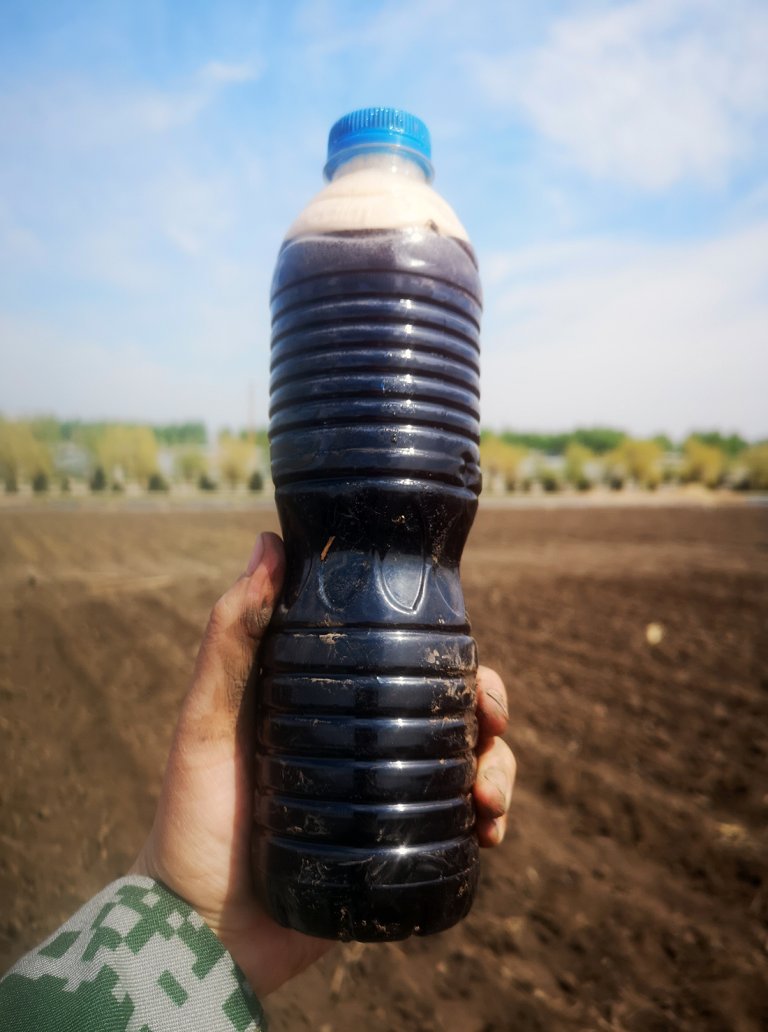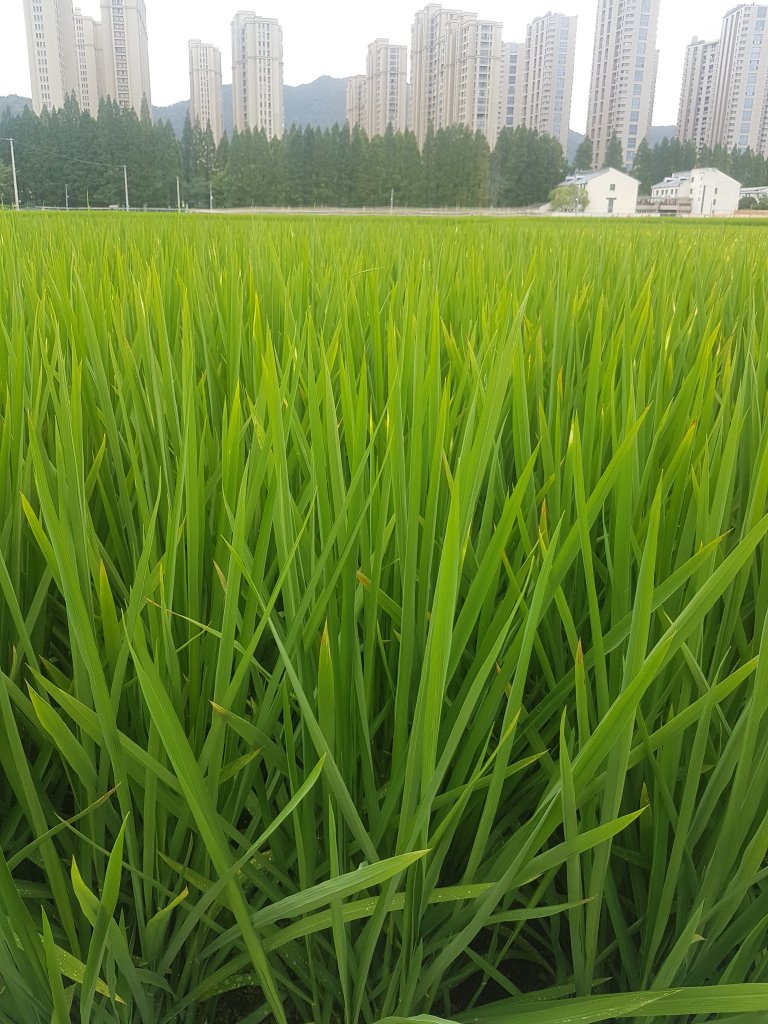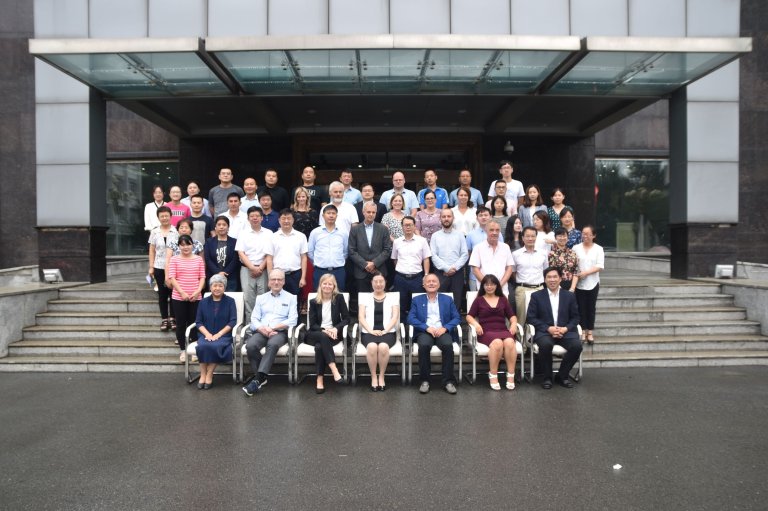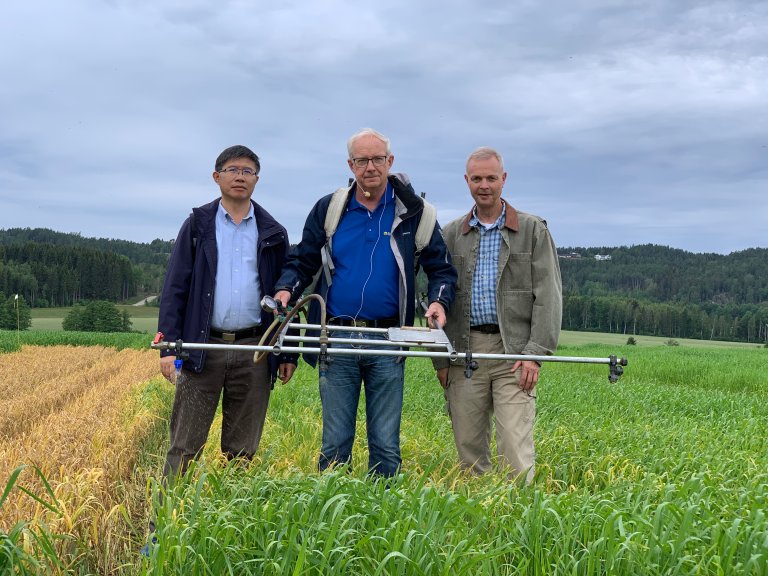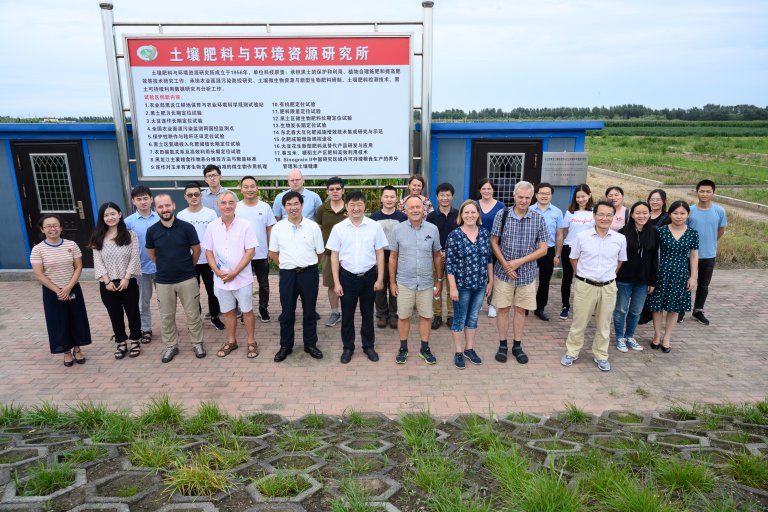SINOGRAIN II Work Packages
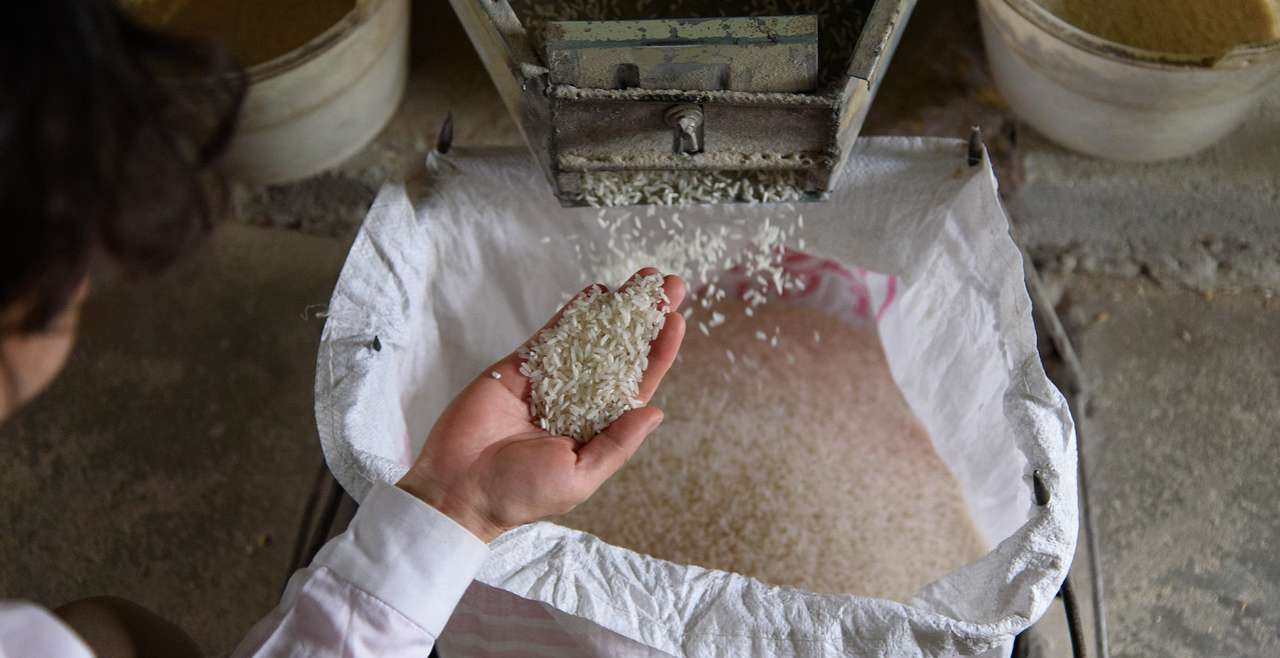
Photo: Ragnar Våga Pedersen
With the world’s largest population, China is facing one of the greatest challenges of this century to continue to increase annual cereal production and ensure food security. At the same time as cropland is shrinking and resources are limited, China needs to maintain or improve soil fertility, and protect the environment.
Sinograin II has been separated into five main work packages that will focus on different key areas to address some of these challenges.
WP1: Precision nitrogen management technologies for different scales of farming systems in China
WP1 Leaders: Krzysztof Kusnierek (NIBIO) & Yuxin Miao (China Agricultural University)
China is now the world’s largest producer, consumer, and importer of chemical fertilizers, accounting for over 30% of the world’s Nitrogen (N) fertilizer consumption. However, mismanagement of N fertilizer is common in China. China has fully realized this important issue and has adopted a new “Zero Growth” policy to restrict the further increase in chemical fertilizers after 2020. Chinese scientists have developed regional optimum crop management (ROCM) practices and guidelines to increase crop yield and nutrient use efficiencies compared with current farmers’ practices.
In addition to using the current extension systems to promote the application of the ROCM technologies, China Agricultural University has developed Science and Technology Backyard (STB) programs, with graduate students living in villages to work together with farmers to do on-farm research, demonstration, training and consulting services, to help smallholder farmers adopt such crop management technologies. However, these ROCM practices do not consider field-to-field and within-field variabilities as well as year-to-year weather variability impacts on crop management.
Precision agriculture considers both spatial and temporal variability in crop production and aims to optimize the key factors in both space and time for improved yield, quality, safety, resource use efficiency and profitability with reduced environmental pollution. Precision agriculture has huge potential to further improve crop management through the ROCM practices to support China’s food security, safety and sustainable development.
Main Objectives:
- To develop remote and proximal sensing-based precision nitrogen management strategies and technologies for different large, medium and small scales of farming systems in northern China
- To integrate the developed precision nitrogen management strategies and technologies into the current regional optimum crop management systems for on-farm evaluation and demonstration
- To develop a service providing system for village level precision nitrogen and crop management and to work with the Science and Technology Backyard Program in order to demonstrate and promote the system in selected village(s).
WP2: Automatic pest prediction to improve pesticide usage efficiency in selected regions and crops in China.
WP2 Leaders: Tor-Einar Skog (NIBIO) & Deliang Peng (CAAS)
Reliable pest prediction models may help the farmer decide when and how much to spray against pests and diseases, and may thus increase the efficiency of pesticide application. This may in turn lead to an improved economy (high yield at reduced cost + higher unit price for crops) and health for the farmer, better health for the consumers and less strain on the environment. VIPS is a Norwegian automatic pest prediction decision support tool aimed at being general purpose with regard to prediction model, input data sources and distribution of infection risk warnings. It’s open source and supports different types of prediction models based on weather data, field experimental observations and combination both of them.
Main objectives:
In Sinograin II, the scientists aim to complete the process that was started in Sinograin I with establishing a test environment for VIPS in China. The selected regions and crops will be rice and wheat.
- Report on the identification process for pests and diseases
- Report on prediction models and participatory model validation process
- VIPS service available and ready for use (web and mobile)
WP3: Influence of innovative farming technologies on food safety and environment in China
WP3 Leaders: Marianne Stenrød (NIBIO) & Xingang Liu (CAAS)
In the past decades, China has achieved remarkable increases in food production, feeding 20% of the world population with less than 10% of the arable land. This great achievement was mainly based on the intensive use of chemical inputs like fertilizers and pesticides, which in turn caused environmental pollution and food safety issues.
Solving these problems requires many efforts to reduce the environmental impacts from food production and to assure food safety at food production stage. These efforts will eventually enhance the sustainable development of China.
Norway and NIBIO have rich experience in developing innovative technologies and practical management tools at farm level. Precision farming and reduction of fertilizer and pesticide applications are two of the technologies that have achieved great social and economic benefits. They can be adapted with modification to meet the demands of agricultural productivity in China and solve the existing problems. However, the influence of novel technologies on food safety and environment is not well understood, and there is lack of knowledge and tools for the risk assessment of the novel technologies.
The close collaboration between Chinese scientists and institutions and NIBIO in Norway will seek solutions to these challenges.
Main objectives:
- Develop chemical analytical methods for quantitative analysis and qualitative screening of pesticides in selected food, feed and environmental sample matrices
- Determine representative parameters associated with the quality and safety of soil, water and food; and compare the values obtained by both innovative and traditional farming technologies
- Assess the influences of innovative farming technologies in terms of food product and farmland environmental quality and safety, and help select the innovative farming technologies.
WP4: Management of nutrient inputs for sustainable food production and soil health in selected regions in China
WP4 Leaders: Jiangsan Zhao (NIBIO), Baoku Zhou (HAAS) & Baozhong Hu (Harbin University)
Soil is a key component of ecosystems and soil plays an essential role in agricultural production. Due to long-term focus on high yield alone, irrational over-application of fertilizers and ineffective management, a large area of Chinese agricultural soil is currently in critical condition with severe environmental pollution (run-off in soil and surface water). These agricultural practices must be improved to maintain sustainable food production with minimum environmental footprint. The 13th 5-year plan in China has stated the need and urgency of reducing (and at least zero growth in) application of fertilizers, pesticides and herbicides. Moreover, the growth of population and decline of arable land make the traditional mode of agricultural production in China difficult to sustain. Therefore, organic fertilizers and innovative farming technologies such as precision farming have been encouraged or taken into consideration in China, with an effective understanding and management of soil health using for instance a soil health card system.
To secure food safety and sustainable agriculture and to develop and promote soil test based nutrient management, assessing and monitoring soil quality is becoming more and more important in Chinese agricultural practices
Main Objectives
- To develop and validate a soil health card system in black soil areas of Heilongjiang and Jilin provinces
- To offer recommendations regarding nutrient and fertilizer requirements for the individual farms to help farmers to improve productivity through judicious use of input
- To recruit and educate female farmers and young people in soil health management in China through training courses and active involvement in WP4 activities
- To develop an AMF based soil health and fertility improvement protocol
WP5: Research on the agro-tech extension and household adoption of precision agricultural technology and its economic, social and environmental effects
WP5 Leaders: Xiande Li (CAAS) & Knut Øistad (NIBIO)
With the growth of population and the improvement in the living standards of the people in China, there will be a great increase in the demand for food. Meanwhile, the decline of cultivated land area and the shortage of water resources have become increasingly prominent. The situation for China's food security is still relatively grim in the long run.
There are both insufficient transformation of agricultural technology and insufficient ability of agricultural technology transfer to meet the farmers’ needs, which results in a mismatch between effective supply and effective demand regarding farmers' technology adoption. In addition, stakeholders such as the government, research institutions and farmers, do not connect with each other.
This component of the project aims to analyze the agro-tech extension and household adoption of precision agricultural technology in the pilot areas of Xinjiang, Heilongjiang, and Henan, and evaluate its economic, social and environmental effects. This will provide an important basis for adopting policies to formulate a benign interaction mechanism between relevant stakeholders, promote sustainability of farmers' production, especially regarding the scientific and rational application of fertilizer and pesticide, and therefore help to realize sustainable agricultural development in China. As a result, the farmers frequently irrationally and excessively use chemical fertilizer and pesticide.
Main Objectives:
- To clarify the agro-tech extension and household adoption of precision agricultural technology, and their influencing factors. Then, to evaluate the economic, social and environmental effects of precision agricultural technology
- To promote the adoption rate and the effect of precision agricultural technology in the project sites (Xinjiang, Heilongjiang and Henan) through investigation, discussion, and seminar, and thereby promote sustainable agricultural development
Contacts
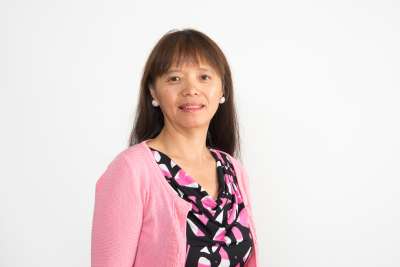
.JPG)
